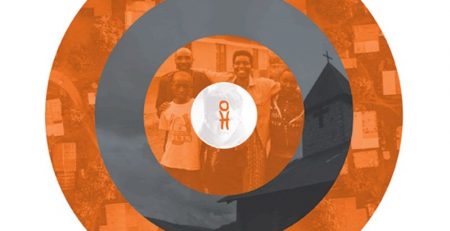5 things social workers want you to know

Ask any social worker why they chose to become a social worker and you’re likely to hear this same response: “I wanted to help people.” These highly trained, caring professionals provide vital, life-changing support to children and families in order to improve the quality of life for all citizens. There’s a lot more to this difficult yet rewarding work than most people realize, so we asked social workers Jessica Latta and Jen Kindler to share five of the most important things they want you to know.
1. We’re committed to ending cycles of abuse and neglect
Every year, millions of U.S. kids are referred to the child welfare system with a staggering 75% of children experiencing neglect. Isolated and overwhelmed parents are struggling to meet the basic needs of their children, and they’re in need of meaningful connection to caring people with the resources to help. “Abuse and neglect are preventable, and that’s why social workers are dedicated to finding solutions to complex problems in order to improve family wellbeing and break cycles for future generations,” says Jen.
2. Social workers do not interfere in people’s lives
Social workers only become involved in a family’s life when either they ask for support or they are referred by a mandated reporter. “A social worker’s job is not policing,” says Jen. “We respect the clients we work with and provide services like crisis management, family empowerment, and advocacy to help improve situations so that children can remain with their family whenever safely possible.”
While social workers advise on and provide recommendations for the wellbeing of their clients, they do not make the final decisions on a case. They work in tandem with the court system, and if a child cannot safely remain in their parent’s custody, a judge provides the final ruling to remove the child from the home.
3. There’s no typical day for us
Referrals to the child welfare system come in at all hours of the day. A social worker’s schedule can differ drastically from day to day and include a variety of tasks. “The majority of a social worker’s time is spent out in the community,” says Jessica. “Their day could include meeting with children and parents, supervising visits, attending court hearings, seeking out resources, logging case notes, completing training, and advocating for children and families.”
4. Self-care is an ESSENTIAL part of the job
Depending on the agency they work for, social workers can have a lot on their plate. “A caseload of 18 children is typical, but if more children are entering the system than exiting, the more likely caseloads are to be higher, even doubled,” says Jessica. “Burnout can happen quickly, and every time a new social worker is assigned, the progress on a case is set back by several months, increasing the time it takes for a child to achieve permanency. That’s why we need social workers to be supported and well-resourced.”
Working alongside children and families who have experienced trauma can also affect social workers and lead to burn out. “This work can lead to emotional and physical exhaustion, and compassion fatigue is a real concern,” says Jen. “The more social workers have a chance to unplug from their work and practice self-care, the more effective they’ll be in serving their clients,” says Jessica. “Even simple things like a community group providing lunch or a church sending notes of encouragement can go a long way!”
5. When we can do our jobs well, children and families win
Social workers are among the most important supports that a child or family in need can have. Providing wrap-around care is much more effective when social workers can practice self-care, manage their caseload, and receive ongoing encouragement and support. “Social workers visit the kids and families on their caseload each month,” says Jessica. “That equates to a lot of traveling and time away from our own families. When the community steps up to meet needs and foster ongoing relationships through CarePortal, it’s a huge help to both the social worker and the family being served.”
“The child welfare system is overwhelmed, and we need more social workers entering and staying in the field,” says Jen. “Churches, businesses, community groups, and even individuals can make a difference by supporting and lifting up social workers.”
Ready to get involved? Discover urgent, vetted needs shared by social workers in your local community today at careportal.org.
Jessica Latta worked as a social worker in Missouri for seven years and holds a Master’s Degree in Education. Jen Kindler has worked as a social worker in Kansas for 20 years and holds an LMSW.


